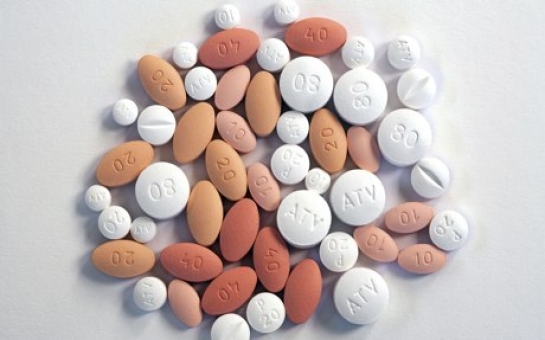Follow us !
It is a scandal drug trial results are still being withheld
Society
16:56 | 06.01.2014

It is a scandal drug trial results are still being withheld
The Commons public accounts committee's report into the government's handling of the UK's £424m stockpile of the influenza drug Tamiflu, published last week, was damning. But starting from this narrow remit, the committee also stumbled – with palpable amazement – into a far wider problem.Nobody can give you a fully informed view on the benefits of any treatment, let alone Tamiflu, because the results of clinical trials are being routinely and legally withheld from doctors, researchers and patients. As the committee pointed out, government agencies around the world disagree on whether Tamiflu reduces your chances of pneumonia and death, but we can have no idea who is right, because we can't see the evidence. Astonishingly, in withholding this information for five years, Tamiflu's makers, Roche, have broken no law – and it is only an accident of history that this drug has become the poster child for change.The first study on the problem of missing results was published in 1986. A 2010 review article by the NHS's own research body summarises the results of a dozen more studies on the same subject: this found that, overall, the chances of a completed trial being published are roughly 50%. This undermines our ability to make informed decisions on everything from surgical techniques to drugs and devices. Unsurprisingly, trials with positive results are twice as likely to be published as those with negative results, so the evidence we do see is potentially biased. Large studies from the past two years, chasing up results from huge registries of completed trials, report similar results. Information isn't just passively left unpublished: it is actively withheld when requested by researchers.Doctors like me cannot possibly make informed decisions about which treatment is best when the information we rely on has been distorted in this way. The problem is endemic, has a serious impact on public health, and has been well documented for over two decades. How can this have been allowed to happen?It's tempting to fall back on crude fairytales of evil corporations, and there is no doubt that industry has lobbied hard against change. Secret internal memos, leaked in 2013, showed the US and EU industry representative bodies discussing their "advocacy strategy" against transparency, including a plan to "mobilise" the patient representative groups the industry often generously funds.But the real scandal lies with the very people we expect to protect us. It seems some civil servants at medicines regulators still wish for a quiet life, where they can ruminate on secret data behind closed doors, with no or limited academic or public scrutiny over their decisions. This is particularly dangerous when you consider that some of the biggest medical scandals of the past few years – problems with the evidence for Vioxx, Avandia and Tamiflu, for example – were only spotted by independent researchers and academics, often after a long fight for access to information on clinical trials.The medical profession, until recently, has been supine. In 2012 the medical royal colleges, societies and even the Department of Health signed up to a bizarre set of documents – apparently orchestrated by industry – claiming there is a "robust regulatory framework" ensuring access to trial results. Not only does this give false reassurance on a vitally important matter of public safety, but the signatories refused to answer even the simplest questions about how they came to sign such peculiar statements.Now, all that has changed. Some 130 patient groups, representing more than 100 million patients, have signed up to All Trials, a campaign I co-founded with the BMJ and other groups a year ago. Others supporting the campaign include Nice, the Medical Research Council and GlaxoSmithKline one of the biggest drug companies in the world.The final frontier is delay and denialism at the Medicines and Healthcare Products Regulatory Agency, the Department of Health and the government. David Cameron, when asked about missing trial results and Tamiflu, at prime minister's questions, explained that he took this problem seriously, and suggested new EU legislation will fix it. This is untrue. New EU legislation – which the industry have been lobbying desperately against – only requires better sharing for trials starting after 2014. Even if it passes, this will do nothing to improve the evidence base for the decisions made in clinics around the world today. The overwhelming majority of treatments prescribed by doctors right now – the everyday drugs for blood pressure, cholesterol, ulcers and more that are taken by millions – all came on the market over the past two decades, not the past seven days. That is the era of evidence that patients need.Government should ride the wave we have created, and act. There has been more progress on trials transparency in the past 12 months than in the past 25 years. Proposals from industry and regulators are riddled with loopholes so huge they exempt the vast majority of trials on the medicines we use today: but these loopholes are finally being called out.The net is tightening for those who belittle this problem, or pretend it has been fixed, and it's almost painful to see how easy it was for patients and doctors to have such an impact. We should have acted sooner, but we have an unprecedented opportunity for change. Anyone undermining the case for transparency will find themselves on the wrong side of patients and the wrong side of history. Medicine relies on evidence: future generations will look back on us tolerating withheld results in the same way we look back on medieval blood-letting.(theguardian.com)ANN.Az










